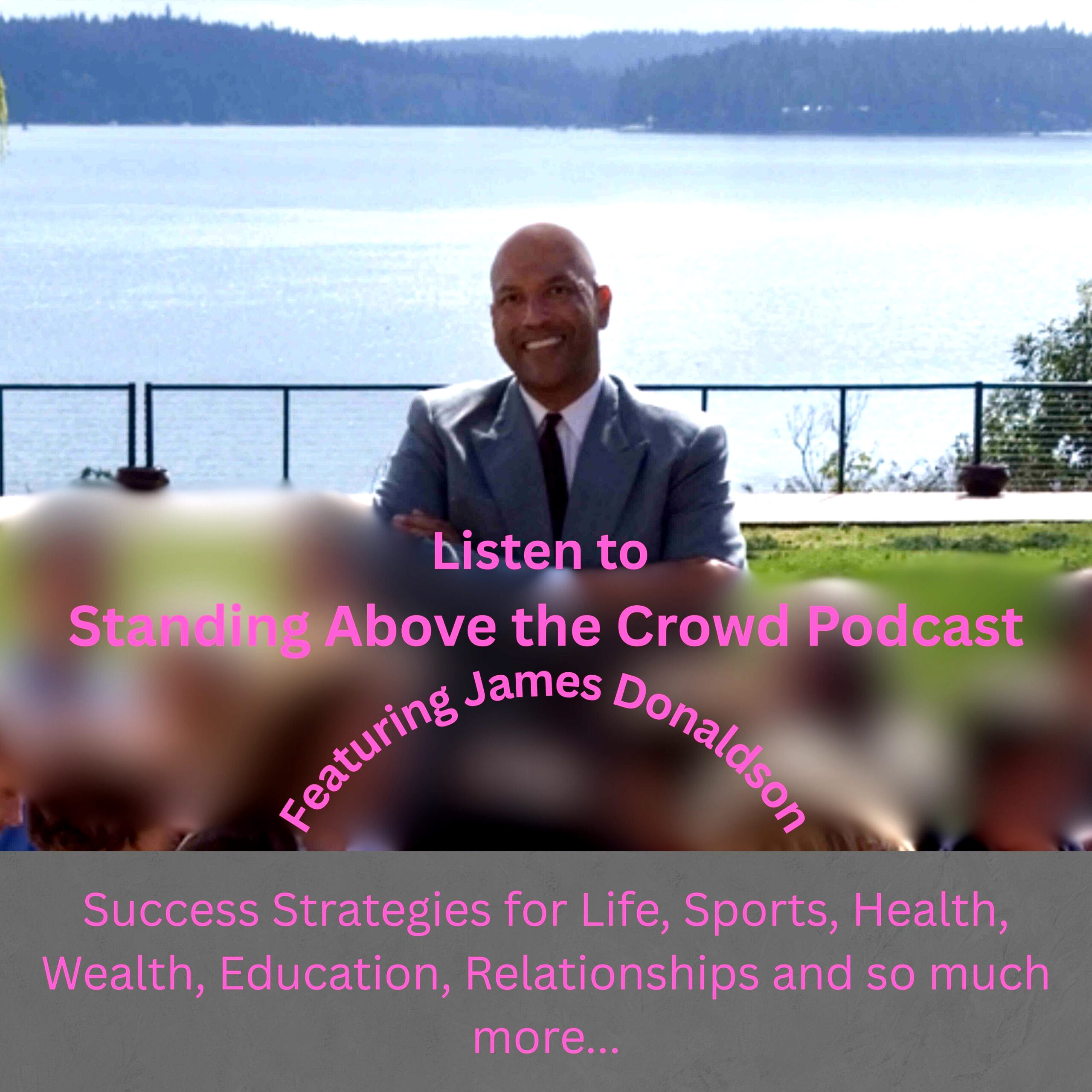Heather Morrison

LOS ANGELES—Kurt Lange, lead pastor at East Coast International Church north of Boston, texted Kristen Kansiewicz, “How do you know if a person is emotionally healthy?”
While that is a big question—one Kansiewicz ended up writing an entire book about, instead of just responding in a text—it’s not uncommon for Kansiewicz, a licensed counselor and staff member at East Coast International Church, to get texts like that as Lange or one of the other pastors is writing their sermon.
Kansiewicz also is the founder of Church Therapy, which provides low cost #mentalhealth services in churches and offers training for counselors specializing in Christian integration.
Her model is about getting counselors in church settings—not only to ensure congregants get the professional resources they need, but also in the hopes of prompting pastors to talk more openly about #mentalhealth.
“My presence keeps #mentalhealth at the front,” she said. “Decreasing #stigma happens all the way from the sermon on Sunday to the way we interact with people who arrive at our #church.”
One in five adults in the United States experience #mentalillness, and #suicide is the second leading cause of death among people ages 10 to 34, according to the #NationalAllianceonMentalIllness.
But historically, faith traditions have been reluctant to talk about #mentalhealth and categorized #suicide as a sin, often leaving survivors and family feeling neglected and hurt.
“That lack of community, that lack of inclusion, that lack of feeling that you are part of the body of Christ contributes to suicidality,” said author and pastor Rachael Keefe.
#JamesDonaldson notes:
Welcome to the “next chapter” of my life… being a voice and an advocate for #mentalhealthawarenessandsuicideprevention, especially pertaining to our younger generation of students and student-athletes.
Getting men to speak up and reach out for help and assistance is one of my passions. Us men need to not suffer in silence or drown our sorrows in alcohol, hang out at bars and strip joints, or get involved with drug use.
Having gone through a recent bout of #depression and #suicidalthoughts myself, I realize now, that I can make a huge difference in the lives of so many by sharing my story, and by sharing various resources I come across as I work in this space. #http://bit.ly/JamesMentalHealthArticle
Stuck in the in-between
When Matt Stanford, CEO of the Hope and Health Center & Institute in Houston, started his career, churches were resistant to even having a conversation about #mentalhealth.

Although there still are examples of faith leaders continuing to condemn #suicide, over the years, Stanford said, he has seen many faith groups starting to move away from viewing #suicide as an “unforgivable sin,” and the conversation is starting to change—with Hope and Health Center providing #mentalhealth training to about 80 faith communities around Houston and a new training at least once a week.
But that doesn’t mean faith groups have fully dealt with their past.
“I think the problem right now is that it’s more of a conversation, like, yes, there’s a problem. Yes, we need to be involved. And that’s kind of where it is. It hasn’t been able to move forward yet,” said Stanford, who earned his doctorate in behavioral neuroscience at Baylor University.
But that “in-between place,” without a new alternative narrative, still is contributing to the problem, Keefe said.
“If we don’t speak out against the shame and #stigma, then we are participating in it,” she said. “#Suicide is mentioned seven times in the Bible; not one tells us God’s response.”
The idea of addressing the shame and #stigma can be a Goliath-level challenge for some places of worship.
“I think a lot of faith communities don’t know how to address it,” said Melinda Moore, clinical psychologist and assistant professor in the department of psychology at Eastern Kentucky University and co-lead for the Action Alliance’s Faith Communities Task Force.
The task force, she said, is “trying to demonstrate some leadership on how faith communities could address the problem of #suicide in a loving, prayerful way.”
Moore lost her husband to #suicide over 20 years ago. She continued going to church, but, she said, “I did not feel supported by my #church.”
She did, however, feel supported by Christ and, for her, that was enough at the time.
“But faith communities can be doing so much more,” she said. “Unless the pastor or the rabbi or the priest addresses the issue of #suicide, (parishioners) are not going to know it’s OK to open up about it.”
Bible-centered counseling
Pastoral and biblical counseling have been common in the past and often are still present in churches today. In 2012, Spotswood Baptist Church in Fredericksburg, Va., created an entirely separate biblical counseling center.
The center focuses on using “biblical perspectives” to help patients and keeps the cost for each visit on a donation-basis; its counselors pray at the beginning and end of each session.
Gene Willis, director of biblical counseling, said they always let people know they aren’t approaching this from your typical clinical basis and that it’s from a biblical perspective—and that’s why people come, he said.
“People come because they know that,” Willis said. “We want to be different. We don’t want to be your typical analysis where it takes God out of the picture. We put God in the picture.”
Willis said they’ve seen thousands of people since they’ve opened and are usually booked a month out. Spotswood’s senior pastor, Drew Landry, knows that nobody is immune from the “difficult, dark days of life,” including those in the Bible.
“There are people in Scripture who went through things like this,” Landry said. “Their faith has enabled them to persevere through the difficult seasons of life.”
For him as the pastor, it has been important to have a place to refer someone when they come to him with larger problems. And, he said, it has allowed the entire congregation to be more open about their own #mentalhealth.
“Because we have a counseling center, we have also had one of our staff members be pretty transparent when he’s had an opportunity to preach and teach,” Landry said. “I guess we’ve kind of given our congregation permission to have the conversation.”
Although two of their staff members currently are working toward getting their license, Spotswood currently doesn’t have a licensed therapist on staff.
Kansiewicz said there’s always going to be a place for pastoral counseling but hopes churches will look for licensed therapists for people who need longer-term or deep psychological help.
“That’s important to not get in over your head,” she said. “But also, a licensed counselor is mandated in more situations than a pastor is.”
Stretched thin
Stanford recognizes faith organizations already are stretched thin. But it would be a misconception to think any church is immune to this problem, he said.
“They look at their community and think it’s not important because nobody is talking about it,” he said.
But, he pointed out, they likely aren’t talking about it because of the #stigma—not because it’s not a problem.
“Everyone has a story,” Keefe said. “If one in (five) people have a #mentalhealth challenge, everyone has a story. If you’re not the one struggling, someone you know and love has had #mentalhealth struggles.”
But faith groups don’t have to start an entire counseling center to impact their communities. For some places of worship, the next step might simply be mentioning #mentalillness and #suicide in a newsletter or during prayer.
“It’s a very simple way to start bringing some of that in,” said Keefe. “And when that becomes more comfortable for people, when it becomes routine that these kinds of prayers are accepted, maybe they will share their own prayer requests.”
Some churches post the #SuicidePreventionLifeline in a highly trafficked area or put up information about what support groups are around the area. Other faith organizations bring in speakers, start support groups or find training events in their area.
Stanford said people are more likely to go to clergy before they go to a #mentalhealth care provider or physician. It’s important to train faith leaders how to respond and where they can lead people to get the help they need—instead of trying to stand in for psychiatrists and psychologists.
Stanford said one of the most important things they do at his center is try to help faith leaders recognize and identify what to look for, develop safe and effective responses, facilitate small groups and become a “Peer Mental Health Coach.”
“(People) don’t walk in the door and say, ‘Hey, I woke up this morning, and today is the first day of a six-month decline in #depression in my mood. And then six weeks from now, I’m going to be in a depressive episode, so I need you to help me,” Stanford said.
Instead, he said, they walk in the door complaining about losing another job or about not getting along with their spouse.
“(Faith leaders) tend to focus on the now,” he said. “‘OK, you’re not getting along with your wife—well, that’s a problem. We got a marriage class. Or you’re not getting along with your wife—it’s a communication issue, start praying together.’”
Kansiewicz has noticed there are not enough licensed counselors that understand how to bridge traditional secular counseling with that of people’s faith.
“People come to me because they’re like, ‘Oh, I would never go to counseling except for I know who you are when you’re in the #church building.’ And so, it makes them feel safe,” she said.
Her program is working to address that problem in churches—and at little cost.
“(We) really train up our counselors and teach them that it’s possible to work in a #church setting,” she said. “A lot of students that I went to school with really have a heart for working with the #church, and they just don’t think it’s possible.”
When there’s a therapist present, the culture of #mentalhealth in the #church really changes, she said. Now her congregation sees going to Kansiewicz as “a badge of honor”—whereas most of her patients hadn’t ever gone to counseling before.
“That’s the sign they’re really serious about moving forward emotionally and spiritually,” she said. “They want to tackle the stuff they’ve never dealt with before.”


